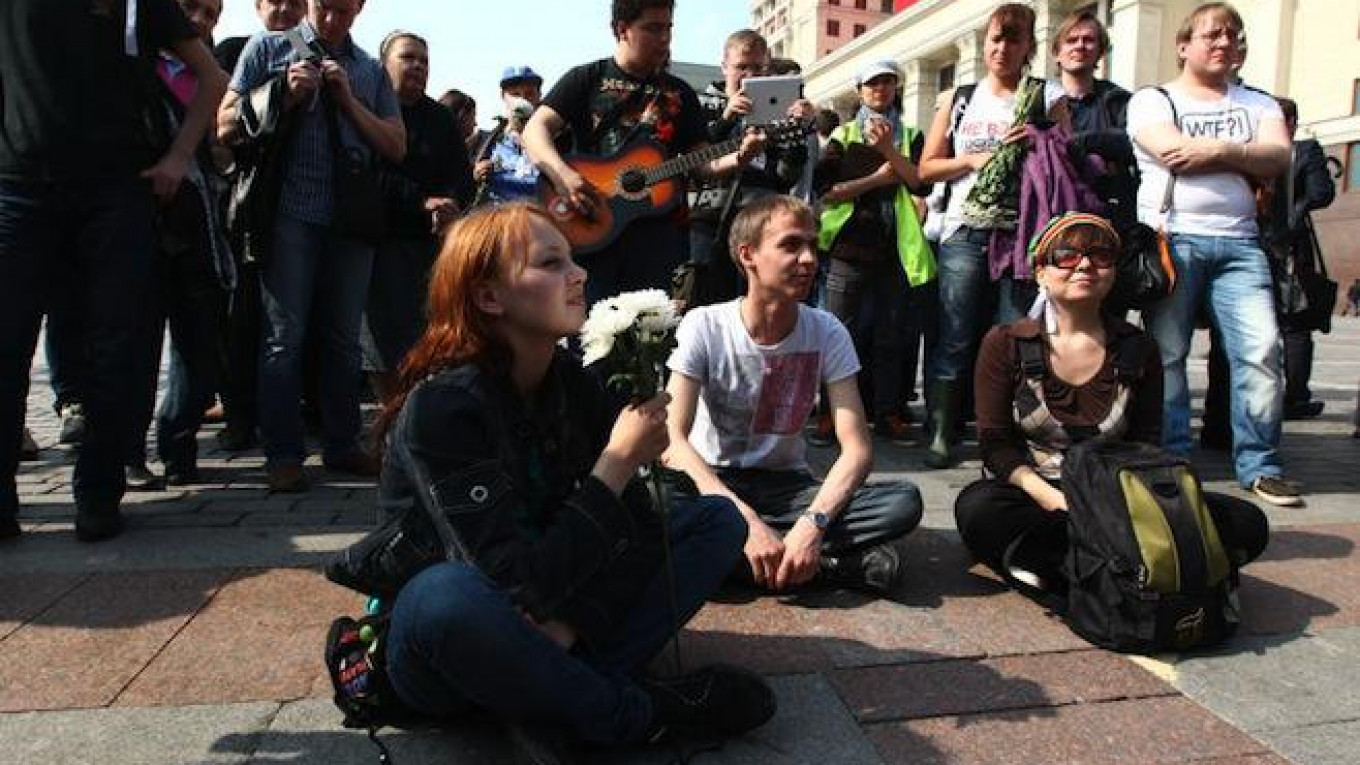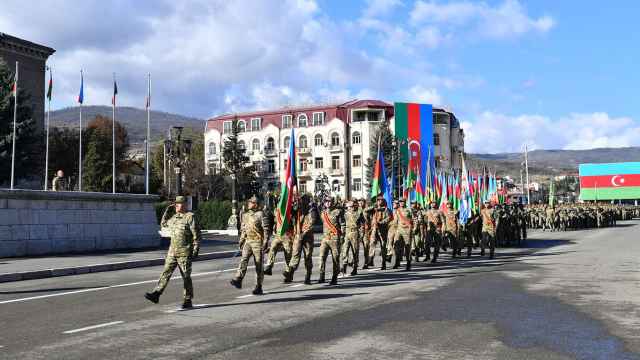Гаврии́л: Gabriel
Time for a pop quiz! What is гаврик? a) a nickname for Gavriil; b) a sleeping mat for dogs, a conflation of гав (bark) and коврик (small rug); c) a silly person; d) a hustler; e) all of the above; f) none of the above; g) some of the above; h) will you just tell us already?
If you chose (g), you're right, and very clever not to be tricked by my fake dog etymology. If you chose (h), your word is my command.
Гаврик is an odd word. Ask four people what it means and you'll get five answers. Гаврик seems to be young or youngish person, usually male but not always; a kind of goof-off; maybe not the sharpest knife in the drawer; someone who isn't the most honest fellow you ever met; or someone who is just not serious. Our boy Гаврик might be just one of those types or be all of them. Figuring out which гаврик is meant in each situation is the first tricky bit. The second is figuring out how to translate them.
Sometimes гаврики might be just "boys" with enough context to indicate that they're bad boys. Here гаврики are kind of low-level street punks pushing into the territory of a local crime boss: Павлик, твои гаврики хапнули винный магазин? Это с твоей стороны хамство, — грустно вздохнул Александр. ("Pavlik, was it your boys who hit the wine store? That's way out of line," Alexander said with a sad sigh.) And here they'll be up to no good: Мои гаврики здесь по улицам пошустрят (My boys will be hustling on the streets.) And in this case, the гаврик was caught: Опер вдруг остремительно побагровел. — Слушай, гаврик! Ты со мной не шути! (The detective suddenly turned purple with rage. "Listen, you punk! Don't play games with me!")
In other contexts they are just guys, blokes, dudes — the key word here being "just." They aren't anyone special. Here is the head of a laboratory complaining: Подчиненных у меня — двенадцать гавриков, а за вином отправить некого. (I've got 12 blokes working under me and there's no one I can send out for wine.)
And then sometimes those gray men whom no one notices are not gray men at all: Дело в том, что те два гаврика, "фотографы", оказались гэбэшниками (Actually, those two nobodies — the photographers — turned out to be KGB.)
The kind of гаврик that is hardest to translate is the non-serious гаврик — the person who isn't trying hard, or doesn't really care, or who just doesn't cut it. On a translators' forum, one participant wrote about serious translators and гаврики — slapdash translators who crank out a romance novel over a weekend, never double check anything, and make up whatever they don't understand. But гаврики can be redeemed: Люди переходят из гавриков в активные члены форума (Lightweights can turn into active members of the forum.)
So people work with гаврики: Получил восемьдесят "годных необученных" гавриков и должен был обучить их военному искусству (I got 80 "able-bodied but untrained" know-nothings and I had to teach them the art of war.) And sometimes they have success: Как ни странно, мои гаврики оказались гораздо лучше, чем я предполагал (Strange as it seems, my twerps turned out to be much better than I expected.)
So be nice to your local гаврик. He might turn out to be president some day.
A Message from The Moscow Times:
Dear readers,
We are facing unprecedented challenges. Russia's Prosecutor General's Office has designated The Moscow Times as an "undesirable" organization, criminalizing our work and putting our staff at risk of prosecution. This follows our earlier unjust labeling as a "foreign agent."
These actions are direct attempts to silence independent journalism in Russia. The authorities claim our work "discredits the decisions of the Russian leadership." We see things differently: we strive to provide accurate, unbiased reporting on Russia.
We, the journalists of The Moscow Times, refuse to be silenced. But to continue our work, we need your help.
Your support, no matter how small, makes a world of difference. If you can, please support us monthly starting from just $2. It's quick to set up, and every contribution makes a significant impact.
By supporting The Moscow Times, you're defending open, independent journalism in the face of repression. Thank you for standing with us.
Remind me later.








